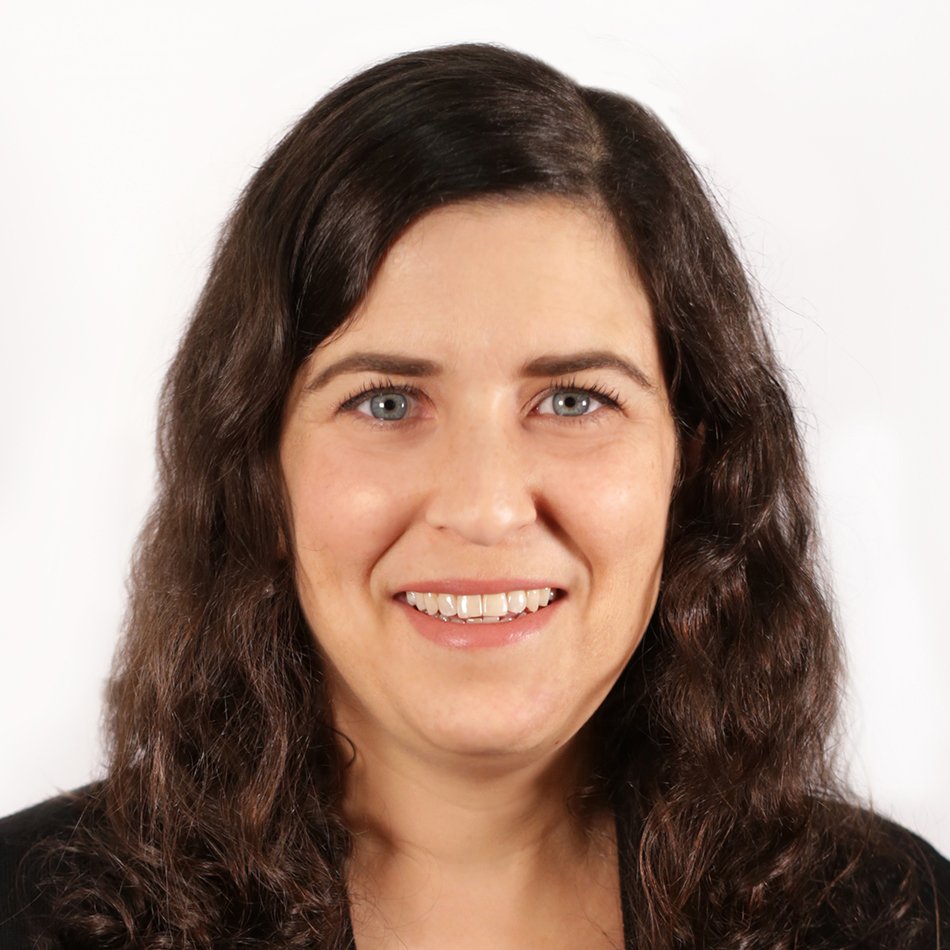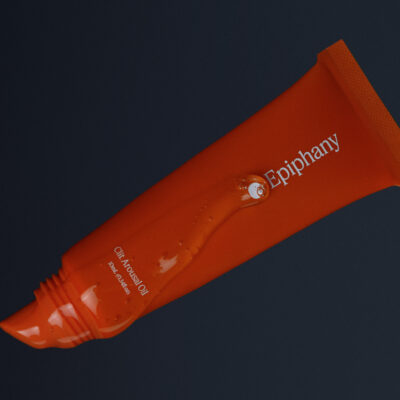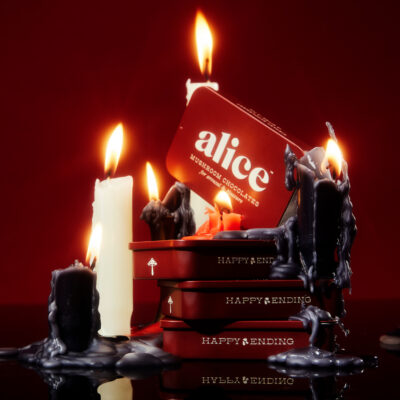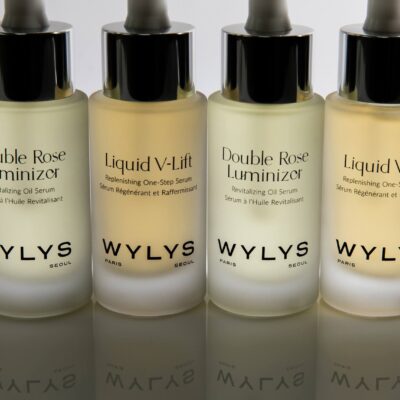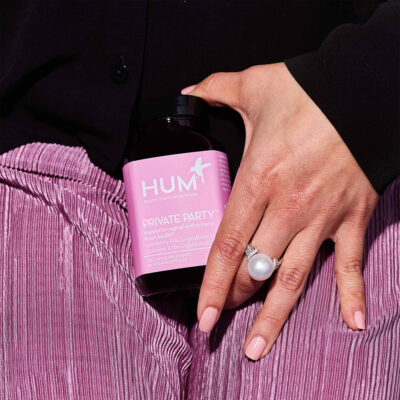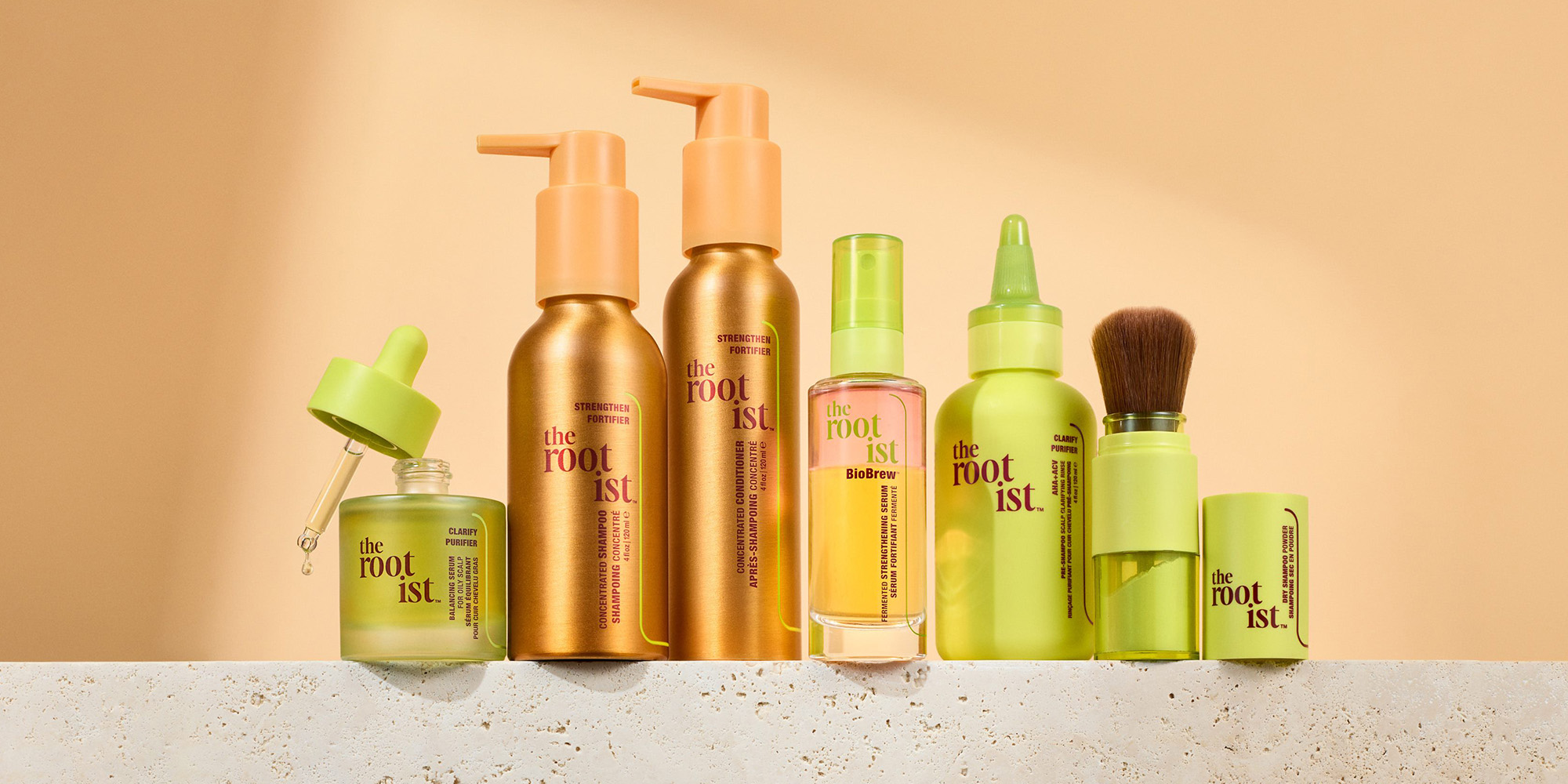
Farmacy Founder David Chung Has A New Brand At Sephora And Growing Manufacturer Out To Transform The Supply Chain
Serial beauty entrepreneur David Chung is far from done with serial beauty entrepreneurship. After selling Sephora-native clean beauty brand Farmacy to Procter & Gamble in 2021, he’s back with another brand hitting Sephora, The Rootist, a haircare play that enters the hot scalp care field with fermentation-powered formulas.
Likened to “kombucha for your hair,” it’s launching with six products priced from $26 to $48: BioBrew Fermented Strengthening Serum Spray, AHA+ACV Pre-Shampoo Scalp Clarifying Rinse, Clarifying Balancing Serum, Strengthen Concentrated Peptide Shampoo, Strengthen Concentrated Peptide Conditioner and Clarify Dry Shampoo Powder. The Rootist went live on sephora.com Tuesday and will roll out to 600 stores Feb. 23. The brand is projected to generate $20 million in first-year sales.
The Rootist isn’t the biggest part of Chung’s growing beauty enterprise. His goal is for iLABS, a manufacturing company he began in 2019, to cross $100 million in 2024 revenues. Along with guiding The Rootist (and possibly more brands to come), Chung, whose beauty entrepreneurialism also formerly encompassed retailers Mona’s and Cosmetic World, manufacturer Englewood Lab and brand 3LAB, is busy building iLABS’ capabilities well beyond standard contract manufacturing, including in packaging, content and ingredient technology.
“When people ask me about iLABS, I always tell them we are not a contract manufacturer,” says Chung. “We are a research and development company that happens to do manufacturing, that happens to do batching and filling, but that’s not us.”
Beauty Independent talked to Chung about why he’s returned to the brand business, how he’s starting a brand differently today based on learnings from previous brands, what makes iLABS stand out from its manufacturing competitors, trends he thinks will shape the future of beauty, and the innovative new approach to global ingredient supplies he’s working on.
Before The Rootist, you launched Farmacy in Sephora and sold it to P&G. What was that road like?
Farmacy launched in Sephora back in September 2015. At that moment, I already had a good relationship with Sephora, and that year was a lot about clean beauty [and] sustainability. We got excited and together we went into the kitchen and talked about different formulation innovations, the packaging, the name, and we launched it together. It was really a collaboration between Sephora and me.
Then, we really grew. We were not really ready to exit, but there was a lot going on. There was a big election with Joe Biden and tax implications. P&G was the right partner. That was really my first experience dealing with a large company like P&G to exit, and it was a really great experience. I thought I was going to have a difficult time because they got a million people working there, but they were very organized. They deliver what they say, they’re very honest, very transparent, and I would definitely do that with them again if there’s an opportunity.
What did you learn about what it takes to grow and sell to a conglomerate like P&G?
What I learned was don’t [overdo] the distribution channels. You need to have some room. When a company like P&G buys you, you want to have them scale it. Farmacy was only distributing in Sephora in the United States. We were not in Ulta, Target or any other distribution channels. Internationally, we were really only in China.
So, when P&G looks at it, they’re like, “Oh wow, we have 200 countries around the world that we have affiliates that we could scale up. Then, in the United States, we could sell to Target, Ulta and many other distribution channels.” So, I learned you should not be over-distributed when you’re starting your brand and you’re growing. You need to focus on a few countries and grow vertically, not laterally.
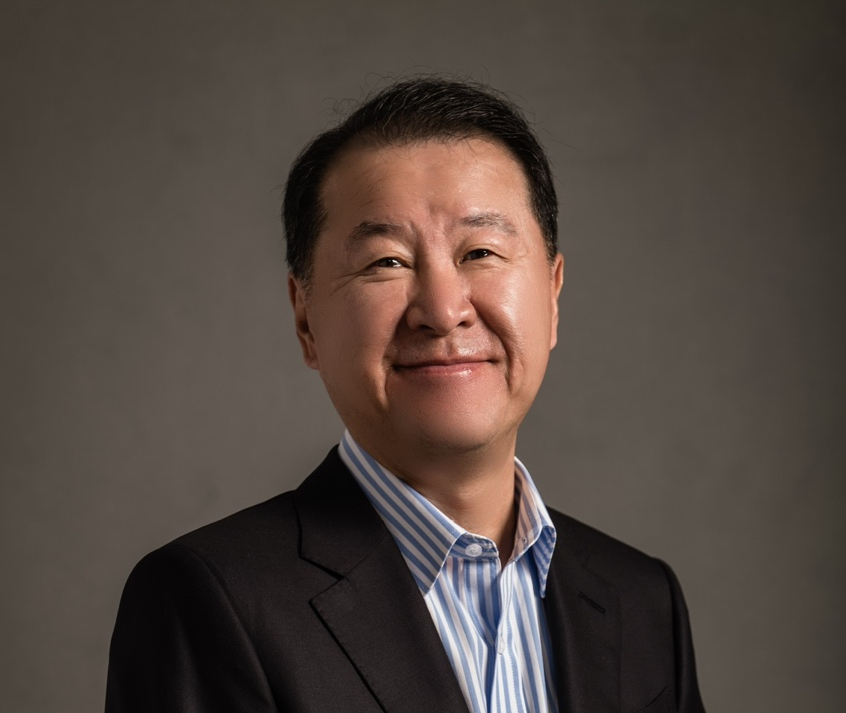
What did you want to do after Farmacy?
I really enjoy building a company. For me, it’s not work, it’s enjoyment. Soon as I decided to sell it and we closed the deal, I was already thinking about the next venture without violating the non-compete. Obviously, I’m not really doing it for money because I just made a lot of money with P&G, but I’ll not go to Hawaii and sit by the beach just looking at the water and sun.
What does your company overall encompass now?
After exiting Englewood Lab and then focusing on Farmacy, now we have this company called iLABS. What I learned was that, for a brand to become successful, you need to have innovative product that works, is unique and has efficacy. I mean, you need social media and you need marketing, but, if the product does not work, you will not get the repeat client. So, understanding that, what I want to do with iLABS is really invest in innovation and new products we develop that we pass on to the clients.
I’m building iLABS in New Jersey and also iLABS in South Korea. We’re putting a lot of money behind iLABS South Korea. Then, a year ago, I bought a packaging company in South Korea called Morae Packaging. It has a glass factory that produces glass for the beauty industry like perfumes and skincare and plastic injection mold as well.
The reason I did that was more and more people want to have a turnkey service, one-stop shopping where they could come, and we have all the areas that we could deliver. When we talk about innovation, innovation comes many different ways. One could be formula, one could be ingredient, but also it could be packaging.
Also, we developed a creative department called cLABS. We have our own studio where we immediately make videos and put them out in the market. People used to read the [product] packaging on how to use it, what does it do. I always say, “A picture says a thousand words, but a video says a million words.”
Even at iLABS, whenever we create a formulation, we want to make sure we use video content to explain our formulation, how does it affect the skin, what are the active ingredients, how to use it, and features and benefits. When we sell that to a brand, they’re like, “Oh, you’ve already done my work, you guys make my life easy.” So, we want to give that service to the brands to differentiate from other manufacturers.
Tell us about the business in terms of where the revenues are coming from.
For iLABS right now, the revenues for us today are mainly from skincare, body care and haircare. Ninety-five percent of our business is our own formula. So, we are bringing the formula to the clients. We don’t do typical contract manufacturing where they [clients] bring the formula. Right now, 40% of our revenue is from OTC sun care.
Sun care, because of the FDA guidelines you have to follow, it takes a long time to make it, and it’s very expensive to do it as well. What we are trying to do here is speed to market. We are creating a formula for sunscreens that’s ready to go. So, when client comes in, they don’t have to spend $40,000 $50,000 for validation costs. We want to say, “You could sell it tomorrow rather than waiting for a year to two years.” We are investing a lot in this area. Just on sunscreen testing, I’m spending over several million dollars.
Do you own formulas or will you give the ownership or sell the ownership to your clients?
We are very flexible. For example, let’s say we own the formula and then brand X is selling to private equity or whatever, if they need the ownership, we always work together and say, “Here’s the formula for you.”
Because I come from the brand side, I understand where they’re coming from, and we’ll work with them. Our goal is not to own the formula. Our goal is to give a service for them to continue to work with us. We don’t want them to just take a formula and go to someone else tomorrow. It’s always been my philosophy that owning a formula is not important for me.
When you look ahead at where sunscreens are going, given the regulatory constraints, where do you think the market is heading?
We are working on two areas of sunscreen. One is formulation, meaning do you just put ingredients in for UV protection or do you add other functionality like vitamins and even makeup so you use it as a foundation like BB creams or CC creams?
The second area is how you use it. The majority of sunscreens today are in a tube, and you squeeze it. We do other options—an air cushion sunscreen, which is like a sponge. Then, we have a different application, where you don’t touch the product and you rub it onto your face. I invested in packaging innovation for sunscreen. You will see a lot from us on that.
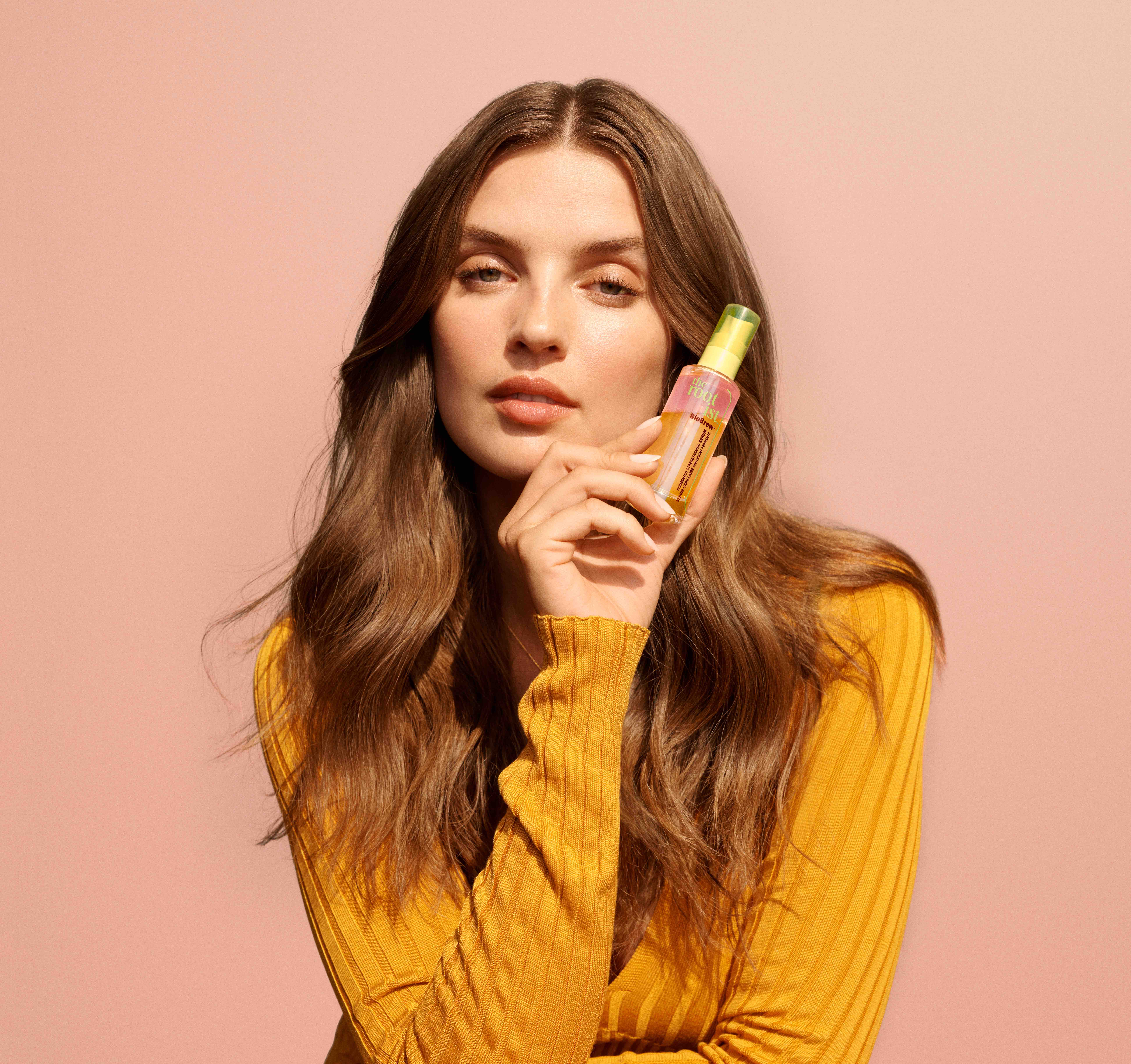
What are interesting developments in packaging?
I want to spend quite a bit more time on refillable these days. You have this beautiful packaging, and you end up using it all, and it’s just garbage. Some of it is so beautiful that you hate to throw it away. We’re trying to figure out, how do you make refillable very economically and sustainably? Instead of the secondary packaging and primary packaging, we are trying to simplify it as much as we can.
Obviously, we are spending time on different materials. There’s material that looks like plastic, but it’s not plastic. It’s a biodegradable product. Then, we try to find a way to do single dosage where there’s no packaging.
What are the capabilities like in South Korea today?
I invested in South Korea not just because I’m Korean American. There are interesting raw materials in South Korea ingredients that are not here. We want to tap into that raw material technology, and South Korea is coming up with a lot of innovative ideas on packaging as well as formulations. We have expanded R&D tremendously in South Korea. We continue to hire talented chemists, and we do a lot of collaboration with the raw material suppliers in South Korea to come up with new ideas.
Another reason I invested there is that brands that are growing a lot bring packaging materials from China and South Korea back to New York, New Jersey, manufacture and then ship back to the Asian countries where they have distribution. You can imagine, with a round trip on the ocean, the costs involved, and there’s a 30% duty coming into the United States.
I said, “Well, that does not make sense, why don’t we just bring [the business] to iLABs South Korea?” There’s no duty, and we can manufacture, fill and ship to Asian countries. I would save at least 10% to 20% on each product for the client. I’ve designed iLABS South Korea with the identical equipment to iLABS USA.
Whether it’s economic softness in China, global warming or another issue, what are you watching that you are trying to future-proof your company against?
Typically, a cream has many raw materials in the formulation. If you’re missing one raw material, you cannot make it. We realized that some of these raw materials coming from Europe or Asia, the lead time is like six months. So, we are creating what we call an exchange, which is like an eBay of raw materials. Your factory might have this raw material sitting around that you had buy because of an MOQ that made you buy a lot. I might have the same issue where I only needed 1 kilo, but the MOQ was 10 kilos. So, what do you do with the 9? We have this software where we are able to tap into each other in order to save.
Do you have other companies using the software?
No, this is software we are going to launch [this year] where everyone is going to be participating, thousands of factories altogether. It doesn’t have to be a contract manufacturer, it could be an Estée Lauder factory, it could be a L’Oréal factory. I want them to participate, and let’s exchange with each other because of the supply chain issues.
Why do you want to develop your own brands as well as working for other brands?
My biggest passion is building a brand. Manufacturing is fun, but it’s not as fun as building a brand. I feel like the manufacturing business is like walking in a park where building a brand is like hiking mountains. With a brand, the sky’s the limit. You’re selling into a hundred countries worldwide. It’s just more excitement.
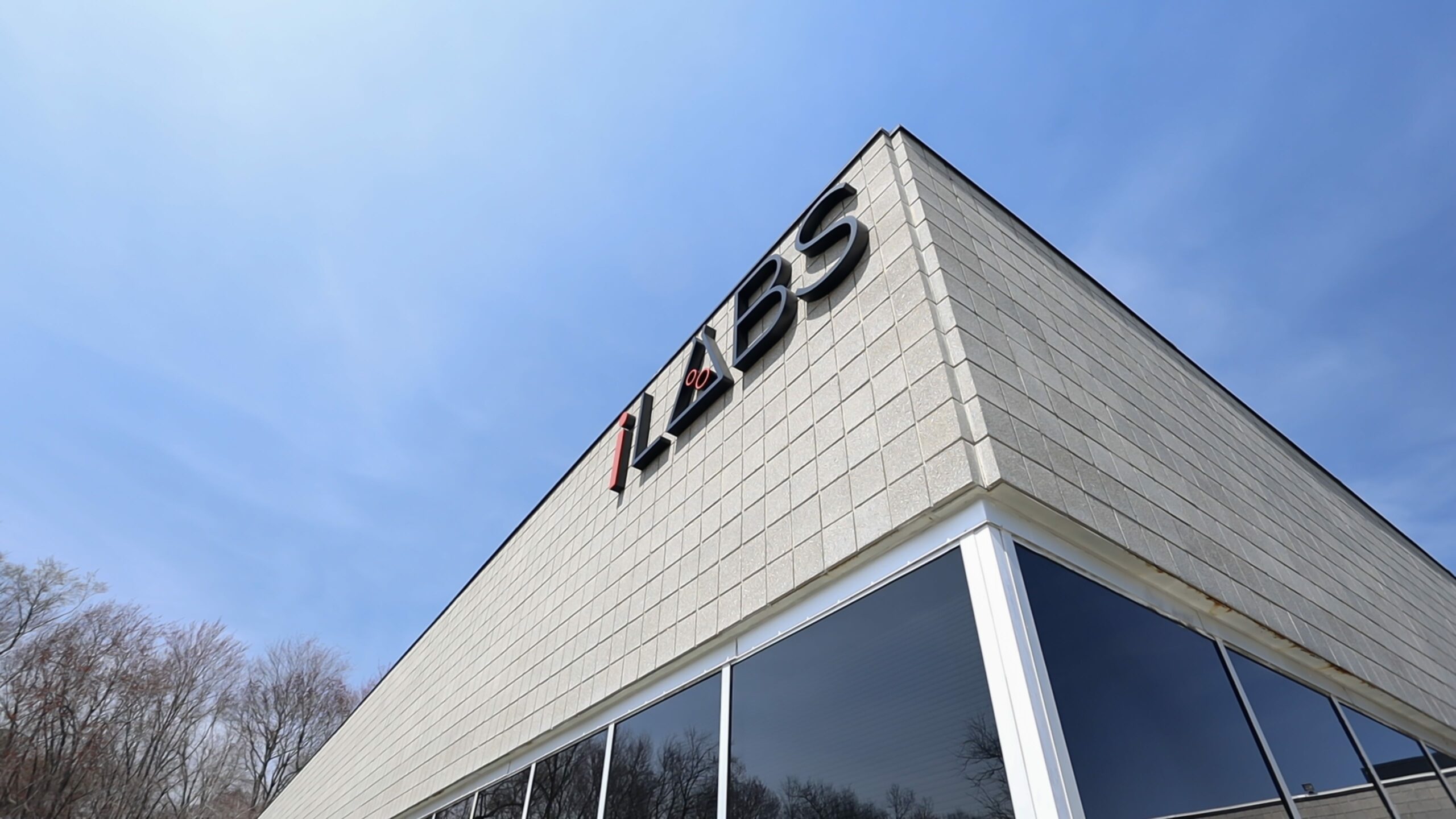
Based on the experience you have building brands, how do you do it differently today than you might’ve done previously?
What I learned is I would try to outsource, especially in digital. Before my investment in digital was very little. I would triple that budget on digital, and I want to do more direct-to-consumer than rely on retail partners. A lot of people talk it being very expensive for digital acquisition, but I think there’s other ways to do that. I want to be innovative where we go in digital and not spend the money that a lot of people are spending today.
Do you mean depend less on social media advertising?
I think I would use a lot of affiliated marketing programs, where we motivate other people to come on to our ship and we do it together.
When you started Farmacy, clean beauty was a big trend. What do you think are the big trends that will shape beauty in the next five to 10 years?
I don’t think clean beauty ever will go away, but nowadays I hear more about efficacy, science-driven. People want to see the results, and they want to have science. Sun care has a lot of demand, and there are other areas also. More and more people are caring about their body. It used to be just your face. When we are thinking about an interesting technology for the face, maybe we make it for the body, just in a more affordable bigger size to put on your body.
In the beauty manufacturing sector, we’re seeing a lot of private equity investment. How do you view that dynamic?
I own 100% of iLABS, and we have zero investors. I have no interest in partnering with private equity at all because our purpose at iLABS is to bring innovation, deliver service and reputation. We are not here to look at the profits. Our equation is not how much profit can we make, can we grow and sell it five years from now? If it happens, it happens, but that is not in our formula.
When my competitors are bought out by private equity or other investors, actually it’s good for me because they only care about bottom line. They care about exit strategy. That means sometimes they cut corners to get there. For me, I’m doing this for fun. I’m building a company that’s interesting and bringing technology, a very different mindset.
This interview has been edited for clarity and brevity.
